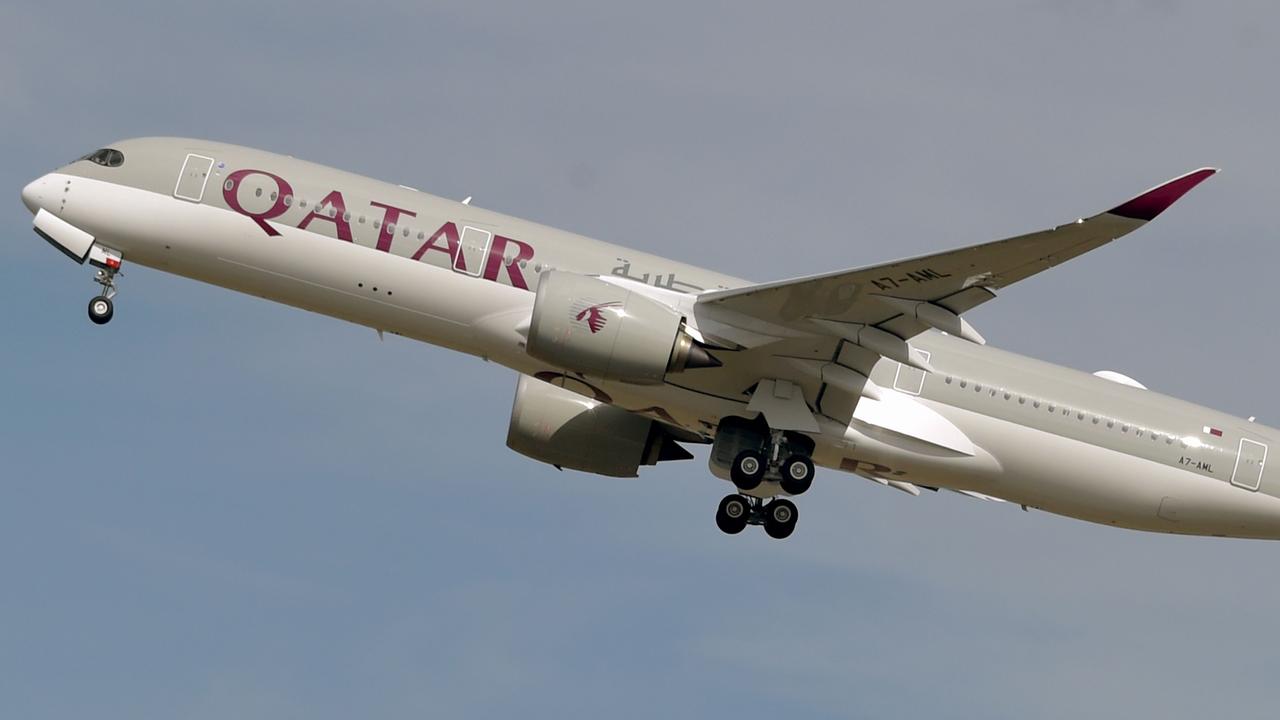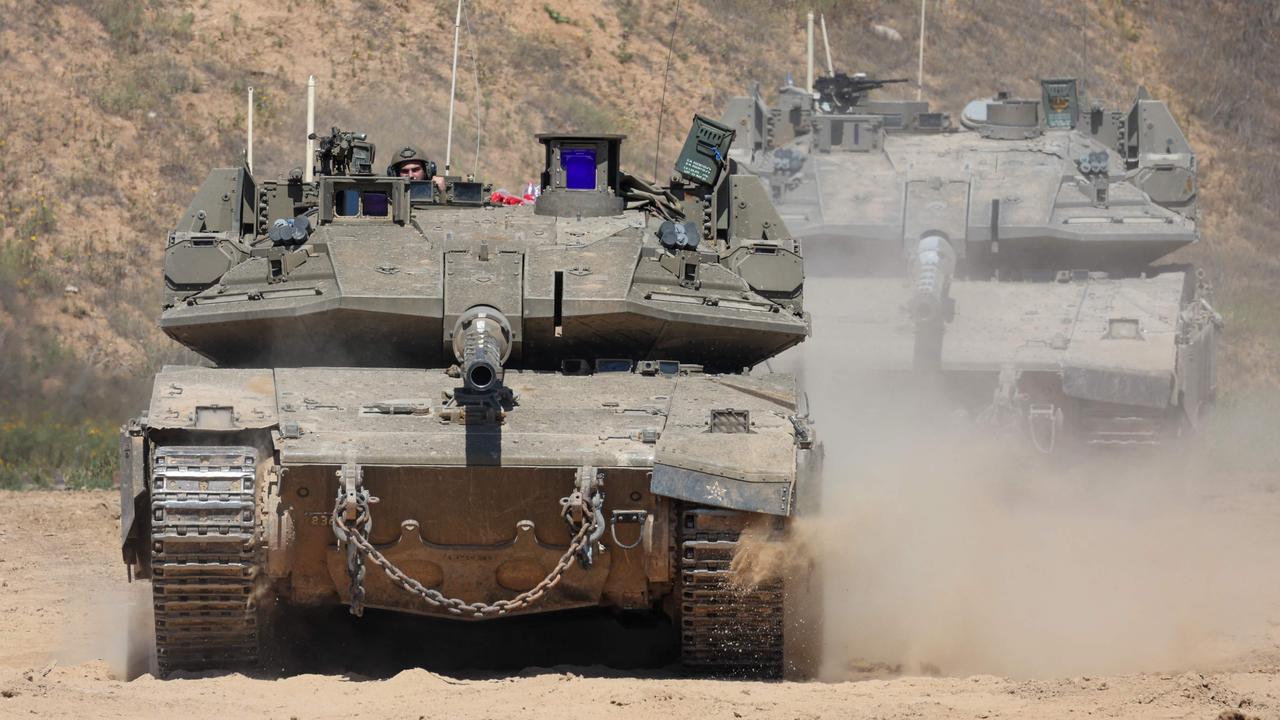Beirut explosion: Security sources say ‘welding’ may have caused deadly blast
Security sources have revealed what may have caused the massive deadly blast in Beirut as Australia announces $2 million aid to help.
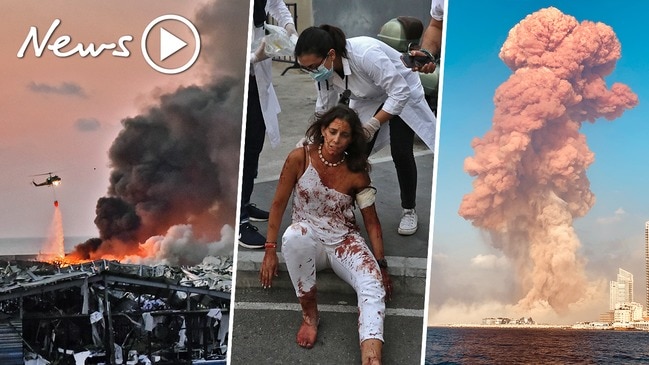
The massive explosion in Beirut, Lebanon may have been caused by “welding work” happening nearby according to reports from security sources.
At least 100 people have been killed and 4000 people injured after the enormous blast destroyed dozens of buildings and shattered windows, with Lebanese Prime Minister Hassan Diab describing the situation as “a real catastrophe”.
Beirut governor Marwan Aboud said between 250,000 and 300,000 people have been left homeless and the cost of the damage is between $3 billion-$5 billion.
While officials did not say what caused the blaze that set off the blast, security sources and local media said it was started by welding work being carried out on a hole in the warehouse, Reuters reported.
Footage of the explosion went viral on social media, showing an enormous red mushroom cloud rising above the city near the harbour on Tuesday night.
Officials said the death toll is expected to rise, with the blast being branded the most powerful ever to rip through Beirut.
AUSTRALIA ANNOUNCES $2 MILLION FOR BEIRUT
The Australian Government has announced it will send $2 million to help Beirut through the crisis. The money will go to trusted aid partners, and will include $1 million for the Red Cross and $1 million for the World Food Program.
Foreign Minister Marise Payne said it was a “very sad day for Lebanon and for so many Lebanese-Australian families”.
She told 2GB the Australian Government is receiving reports of “very, very extensive damage”, saying she knows there has been an “enormous impact”.
RELATED: Deadly substance in Beirut explosion
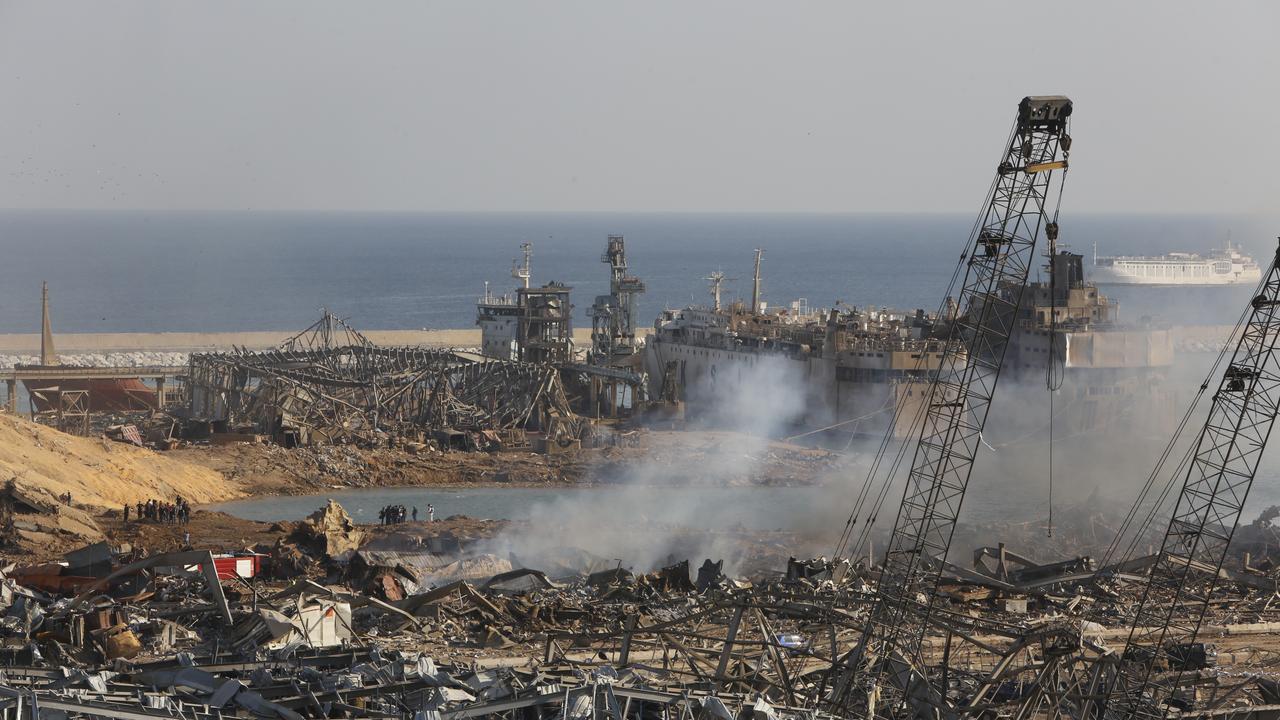
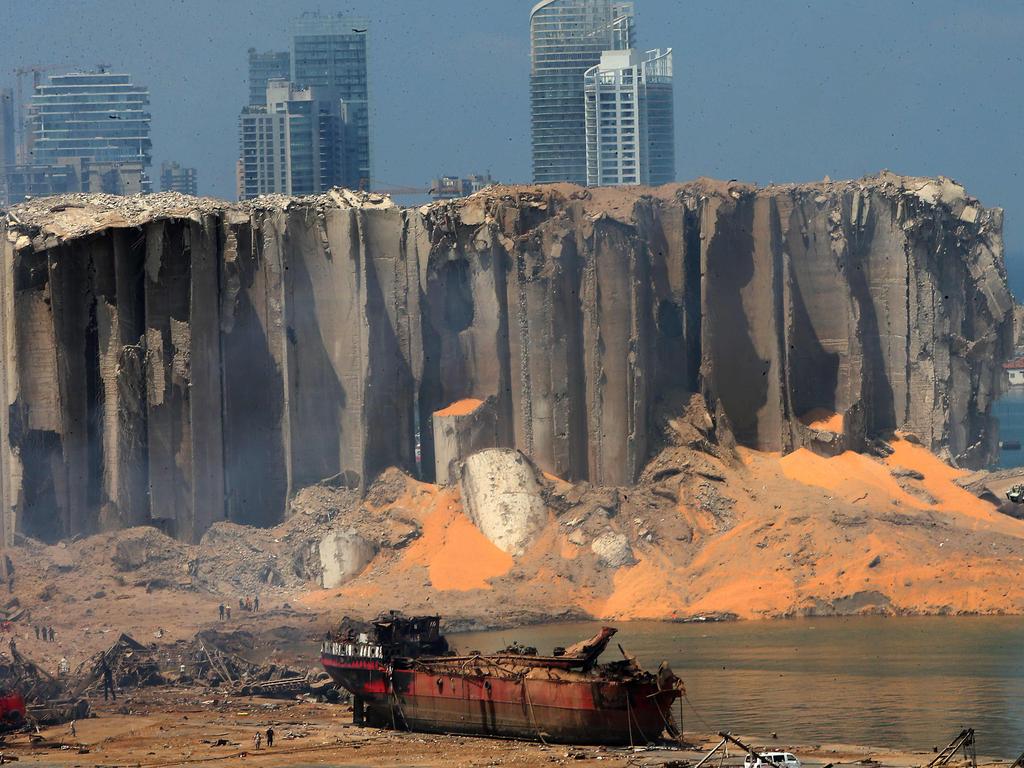
RELATED: Chilling detail in Beirut explosion
The Foreign Minister confirmed that one Australian is among the dead and she “can only imagine” the death toll will rise in the “very, very serious incident.”
“Sadly, yes, that is the case,” she said about the death of an Australian citizen in the city. “We will await the family’s decisions around those matters and work closely with them in a consular sense as they go through what is a very traumatic time.
“We also have, of course, a large number of our own staff on the ground there. It‘s a relatively small embassy, but our own staff, I can assure Australians that they are safe, although the embassy itself, the chancery in particular, was hit in terms of windows being blown out.
“About 90-95 per cent of all of the windows at the front of the building are completely destroyed. There were glass injuries and other minor injuries as a result of that, but we thank heavens that those injuries were not more serious, although staff have, of course, received medical care.”
She also dismissed US President Donald Trump’s claim that it might have been attack, stressing it was a “very, very serious accident”.
Fire and Rescue NSW said “news is starting to surface that many of those killed today were firefighters.”
“As a department with Lebanese emigrants currently working in our stations across NSW we keep these firefighters as well as their city and their country in our thoughts.”
News is starting to surface that many of those killed today were firefighters. As a department with Lebanese emigrants currently working in our stations across NSW we keep these firefighters as well as their city and their country in our thoughts. pic.twitter.com/3RlB4dKaiq
— Fire and Rescue NSW (@FRNSW) August 5, 2020
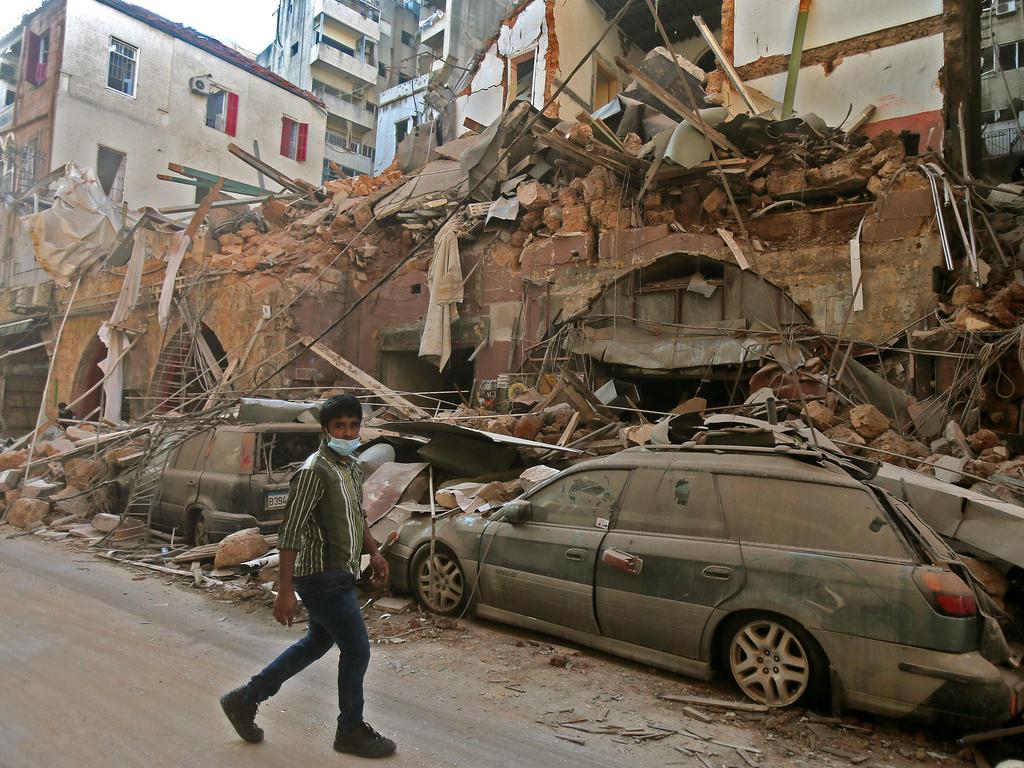
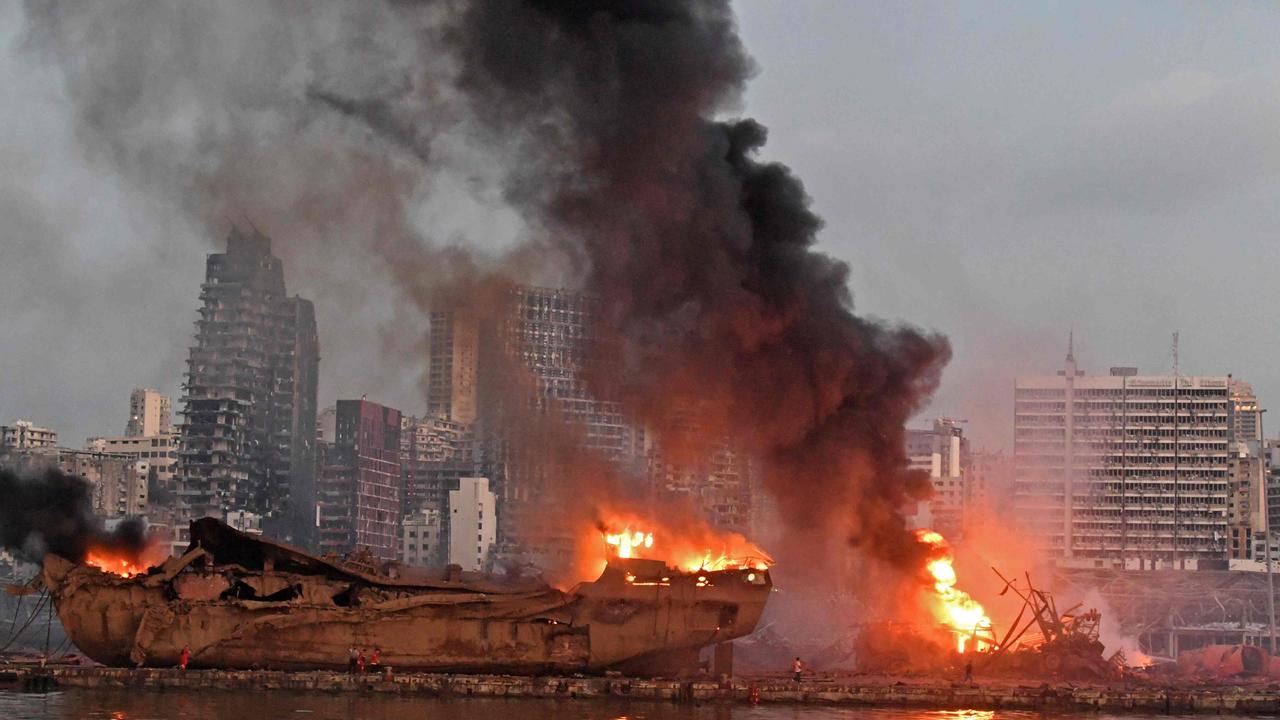
WORLD RUSHES TO PROVIDE AID
The European Union said Wednesday it would rush rescuers, search dogs and equipment to Beirut to look for any survivors trapped in rubble after the massive blast that struck the city.
“The EU Civil Protection Mechanism is now co-ordinating the urgent deployment of over a 100 highly trained firefighters, with vehicles, dogs and equipment, specialised in search and rescue in urban contexts,” the European commission for crisis management, Janez Lenarcic, said in a statement.
“They will work with the Lebanese authorities to save lives on the ground.”
Emergency medical aid from Kuwait arrived in the Lebanese capital on Wednesday morning.
Lebanon’s Prime Minister Hassan Diab has called on “friendly countries” to support a nation already reeling from its worst economic crisis in decades as well as the coronavirus pandemic.
Gulf states were among the first to respond, with Qatar announcing it would send field hospitals to ease pressure on Lebanon’s strained medical system.
Crews at Doha’s Al-Udeid air base loaded hundreds of collapsible beds, generators and burn sheets onto an air force cargo plane, one of four due to fly from the Gulf to the Mediterranean on Wednesday.
Iran’s President Hassan Rouhani said in a message to his Lebanese counterpart that Tehran was “ready to offer medical and medicinal aid and help treat the injured”.
Jordan’s King Abdullah II also promised to dispatch a field hospital, while Dutch and French forces have also offered to help.
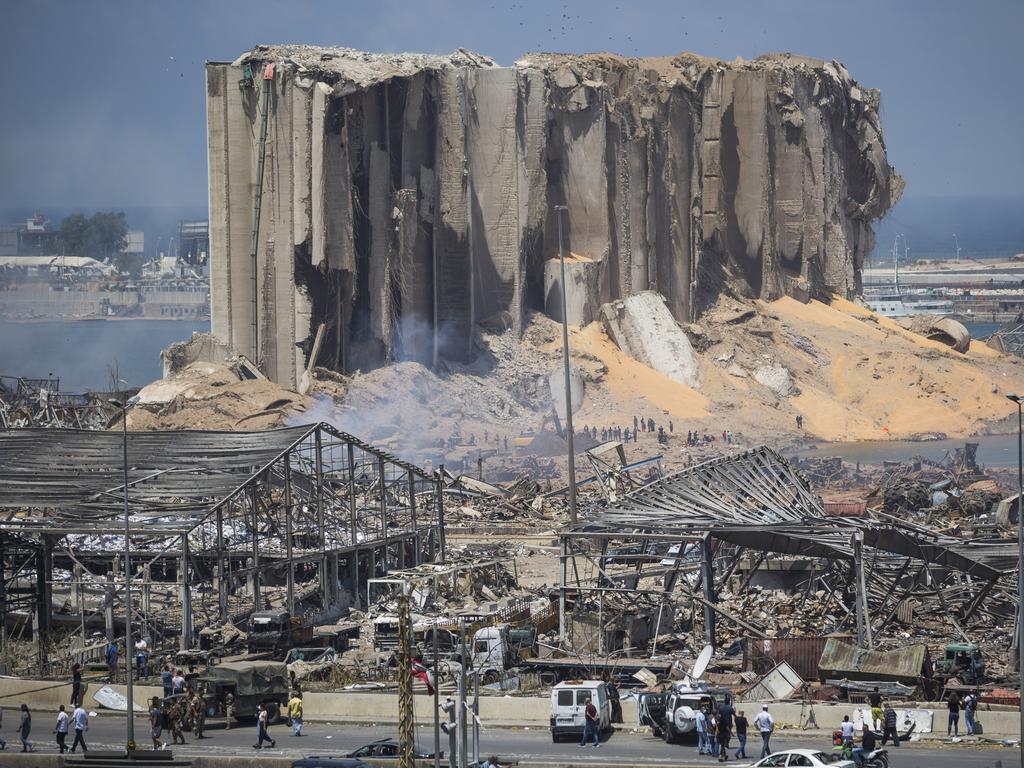
DEADLY SUBSTANCE THAT CAUSED EXPLOSION
The deadly substance that fuelled the Beirut explosion is the same material used in domestic terrorist attacks such as the Oklahoma City truck bombing which killed 168 people.
Ammonium nitrate is a highly reactive chemical and although Lebanese authorities say it was lying in a vast quantity, yet inert, in a warehouse for six years, several possible things could have made it suddenly ignite.
With the chemical formula NH4NO3, it is used mainly for fertilising farmland.
But it is also used as an explosive when mixed with a substance like diesel fuel for bulk industrial operations in mining, quarrying and large scale construction of bridges and roads.
While it is not dangerous on its own, if it becomes contaminated with fuel or some other chemicals, it can detonate.
It exploded buildings, sent shrapnel flying, buried people in rubble and emitted deep booms heard more than 200km away on the island of Cyprus.
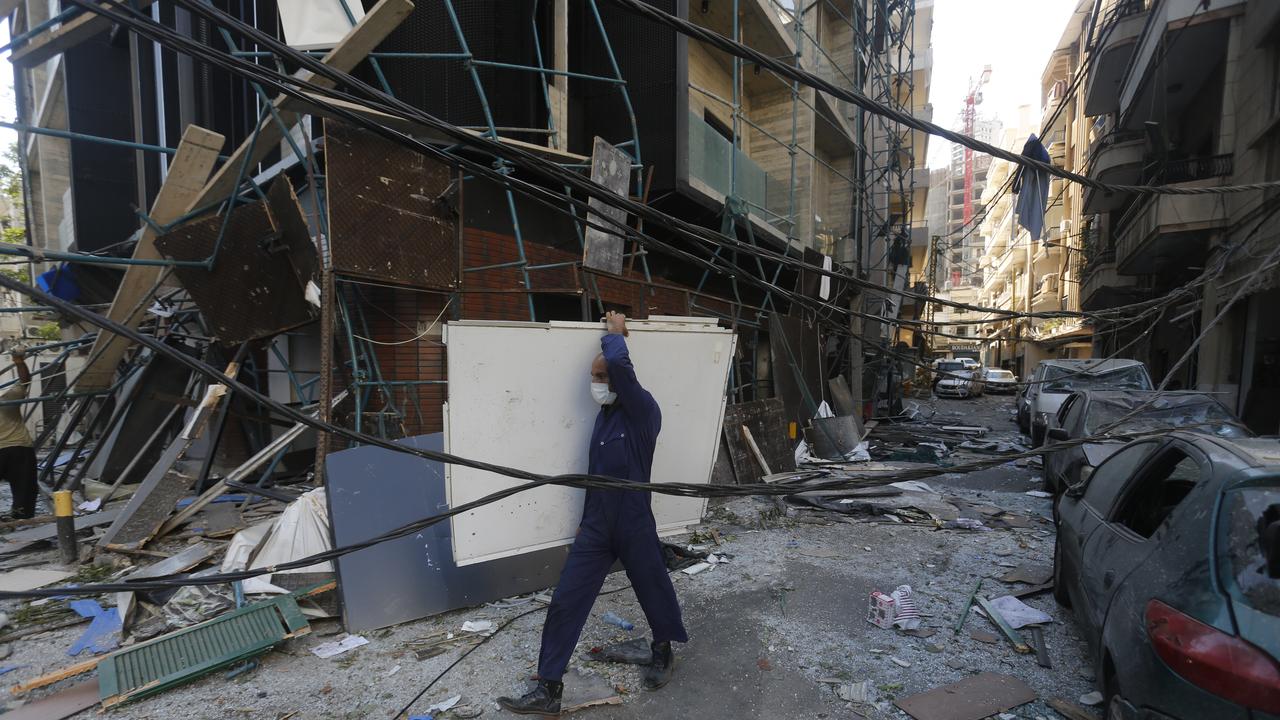
Ammonium nitrate is found naturally as a mineral, but is now mostly made synthetically and appears as a white crystalline substance.
As a fertiliser it is a stable material, however it readily forms an explosive mixture in combination with fuels or fuel oil.
What actually exploded the large warehouse store at Beirut’s port is still being investigated, but ammonium nitrate should not be stored near any heating or ignition source.
Ammonium nitrate reacts with combustible materials and is a strong oxidant, meaning it draws oxygen in to further fuel the blaze.
The chemical store might have been left near different chemicals which could lead to a rapid and violent disintegration.
Government restrictions regulate the control of ammonium because of its potential for misuse.
The chemical has caused civil disasters before, including the 1947 Texas City disaster which was the deadliest industrial accident in US history, also exploding at a city port, killing 581.
But ammonium nitrate is more infamously renowned for it criminal use in homegrown terror attacks.
The catastrophe, which rendered Beirut a disaster zone, was initially thought by some to be an earthquake and others to be a terrorist attack.
However, Lebanese Prime Minister Hassan Diab has revealed in a broadcast to the nation that the source of the explosion was a “dangerous warehouse that has been there (at the port) since 2014”.
– with Candace Sutton

